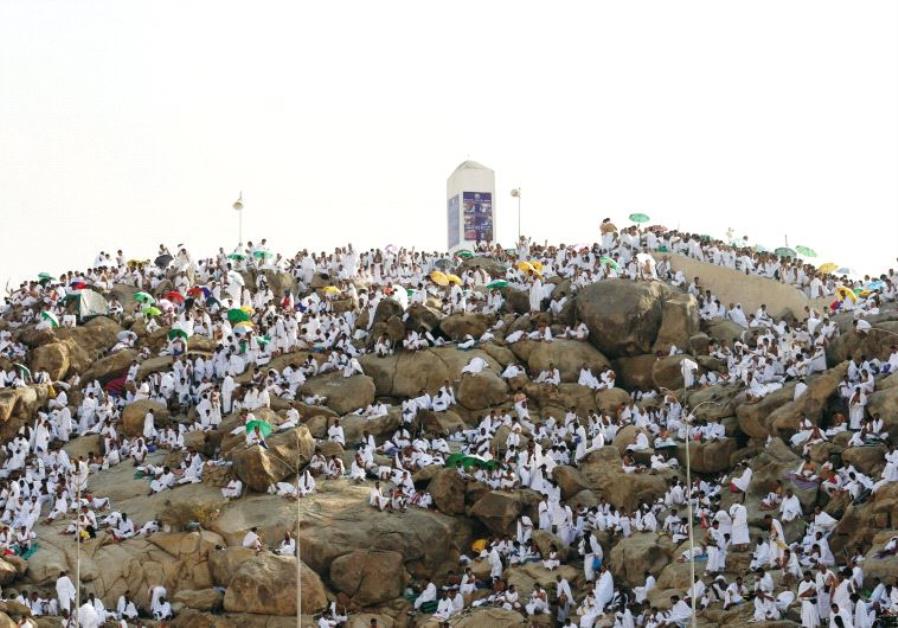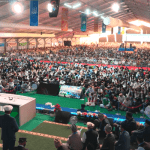More than two million Muslims gathered at Saudi Arabia’s Mount Arafat on Saturday amid the summer heat and regional tensions for a vigil to atone for their sins and seek God’s forgiveness as part of the annual haj pilgrimage.
Pilgrims clad in white robes signifying a state of purity spent the night in a sprawling encampment around the hill where Islam holds that God tested Abraham’s faith by commanding him to sacrifice his son Ismail. It is also where Prophet Mohammad gave his last sermon.
Other worshippers who had been praying in the nearby Mina area ascended in buses or on foot from before dawn. Some carried food, carpets for camping and fans to keep cool as temperatures rose toward 40 degrees Celsius (104 degrees Fahrenheit) before heavy rains and lightning erupted.
Once on the hill, pilgrims sat or lay in whatever space they could find. Many prayed, some cried and others took selfies or streamed videos to friends and relatives back home.
Zaid Abdullah, a 30-year-old Yemeni who works in a supermarket in Saudi Arabia, said he was praying for his own country, where war has killed tens of thousands of people and caused the world’s worse humanitarian crisis, and for Muslims around the globe.
“We can tolerate the heat because our sins are greater than that,” he said as he approached the granite hill also known as the Mount of Mercy. “We ask God to alleviate the heat of the hereafter. As for the heat of this life, we can bear it.”
Hamood Ismail and his wife Raghdaa traveled from Syria, through Turkey, while taxi driver Khaled Maatouq came from Libya. They all said they were seeking an end to the suffering in their homelands which have been torn apart by conflict.
For others, the pilgrimage is a form of relief. Egyptian merchant Ramadan al-Jeedi said he was grateful to accompany his mother after his father died last year.
“It’s the greatest feeling, to feel that God the almighty chose us to be in this place,” he said.
Nadzmi Maruji Naid from the Philippines said he felt comfortable but a little nervous about making haj for the first time: “God willing, everyone here will be accepted by Allah.”
More than two million pilgrims, mostly from abroad, have arrived for the five-day ritual, a religious duty once in a lifetime for every able-bodied Muslim who can afford it.
Among them are 200 survivors and relatives of victims of the attacks on two New Zealand mosques in March.
After spending the day on Mount Arafat, the pilgrims will move to the plain of Muzdalifa by sunset to gather pebbles to throw at stone columns symbolizing the devil at Jamarat on Sunday, which marks the first day of Eid al-Adha, or the feast of sacrifice.














